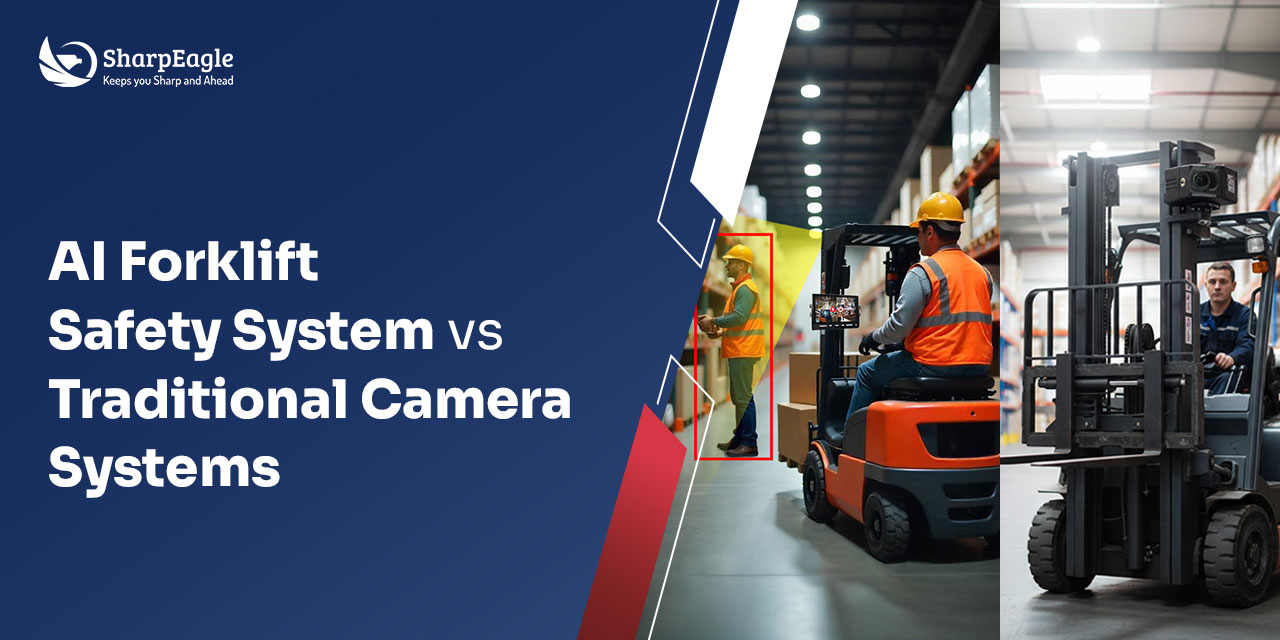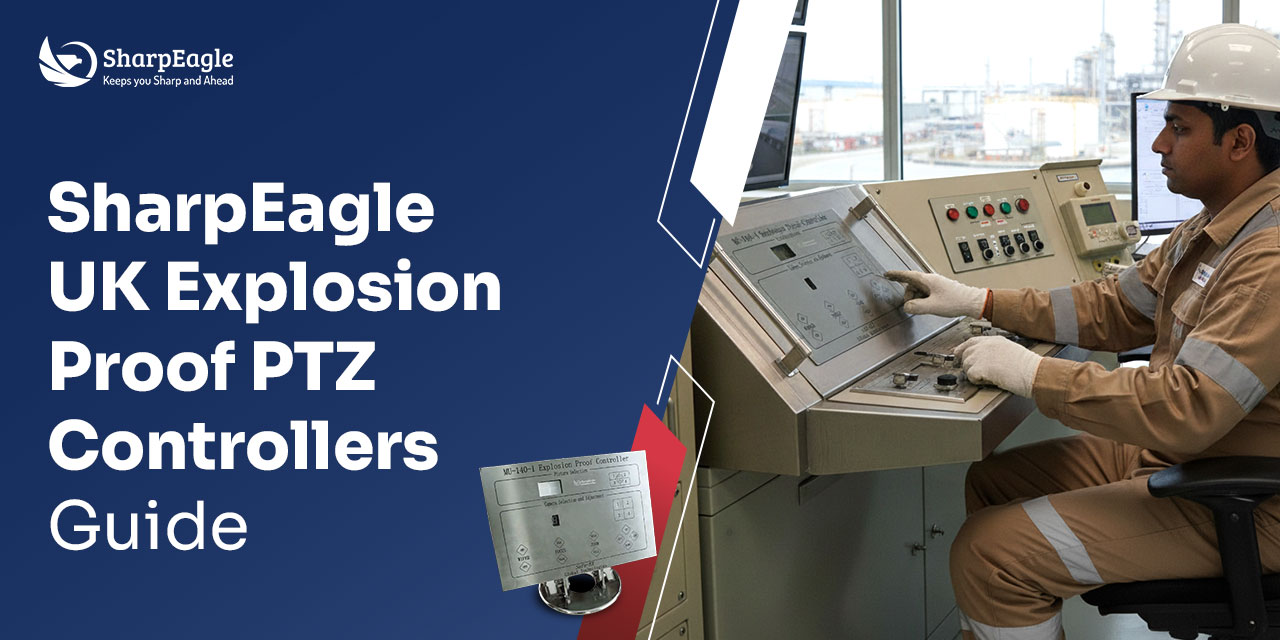

With its unique and diverse risk environment, the maritime industry faces constant threats such as privacy breaches, smuggling, and asset theft. Conventional surveillance methods often struggle to keep up in these harsh conditions, underscoring the need for advanced solutions tailored to the industry's specific challenges. Explosion-proof cameras offer a robust solution to protect ships, cargo, and crew from various safety threats. This is where explosion-proof cameras step in - understanding and addressing these unique challenges.
Whether on a sea-going vessel off the UK coast, a desert mega-port in the UAE or a petro-marine terminal in Saudi Arabia, maritime surveillance faces unique threats: salt-air corrosion, explosive atmospheres, piracy, theft and extreme weather. Standard CCTV often fails in these conditions. Marine-grade and explosion-proof cameras provide resilient, compliant, round-the-clock monitoring—protecting crew, cargo and assets in the world’s harshest operational zones
SharpEagle's marine security cameras are not just a response to the unique challenges of the maritime industry but a catalyst for transformation. In this blog, our experts discuss how these advanced technologies are reshaping surveillance systems and understanding and addressing the industry's specific needs, thereby improving the protection of ships, goods, and people onboard.
Explosion-proof cameras are an essential component for maritime safety or security infrastructures. They are designed to work efficiently in dangerous locations, providing vital benefits such as:

Challenge: Grey Wolf Marine, a shipping company, encountered obstacles in ensuring the well-being of its crew, safeguarding valuable cargo, and averting mishaps on its ships. Conventional monitoring systems, which were not designed for the unique challenges of the marine setting, proved inadequate, resulting in inefficiencies and heightened risks.
Solution: SharpEagle's explosion-proof fixed-type dome cameras were implemented throughout Grey Wolf's fleet to tackle these issues. The cameras were positioned in zones like engine rooms, and cargo and decks offered extensive surveillance and supervision.
Results:
Key Benefits:
Why choose marine security cameras?
By utilising SharpEagle's technology, Grey Wolf Marine substantially improved safety, security, and operational performance.
Conventional surveillance cameras are usually used for everyday security purposes in regular settings, with functions of video recording, essential motion detection, and remote viewing. However, these need to provide the proper protection for classified locations.
Explosion-proof cameras are designed to work in environments where the risk of explosions, such as oil refineries, chemical plants, and mining operations, is top-notch. These cameras feature:
While standard cameras may suffice for most surveillance needs, explosion-proof cameras are essential for safeguarding personnel and equipment in high-risk industries.
To successfully deploy explosion-proof cameras in marine environments, you must carefully plan and maintain them. They must be properly installed by certified technicians who consider factors such as hazardous area classification and corrosion prevention. Regular maintenance entails cleaning, checking for possible damages, and ensuring peak performance despite harsh conditions. Long-term camera reliability also depends on how well the challenges of saltwater exposure or temperature extremes are dealt with. SharpEagle cameras rotate 360° and run uninterrupted for 24 hours. These cameras eliminate the need for 24/7 supervision. Adopting these advanced innovations can pave the way for a secure and efficient future for maritime industries.
To ensure that explosion-proof cameras are safe and reliable, they should comply with maritime security regulations and industry standards. Moreover, the camera should be certified by ATEX or IECEx to qualify it for hazardous environments.
The marine industry has to deal with stringent requirements, so SharpEagle cameras focus on meeting these standards. Opting for an approved solution enables operators to manage risks, improve safety, and optimise operations.
Their cameras are ATEX-certified and can work in Zone 1, 2, 21, and 22 environments. These cameras have a temperature range of -30 °C to +70°C. In addition, they are durable and have an IP68 weatherproof casing. The image quality is top-notch with high resolution, superior low light performance, and a 3D noise reduction feature.
The maritime industry faces numerous challenges in ensuring safety, efficiency, and compliance.
Explosion-proof cameras are not just tools for the sector; they are indispensable assets. Their ability to function reliably in challenging environments, coupled with features like real-time monitoring and analysis, is crucial for ensuring safety, security, and operational effectiveness in the maritime industry. By addressing the challenges encountered in operations, these cameras play a vital role in safeguarding personnel, assets, and the surroundings. With technological advancements like the development of sensors, the improvement of image processing, and the incorporation of artificial intelligence, we can anticipate even more sophisticated explosion-resistant cameras. This future development promises to improve safety and performance further in this challenging field.
SharpEagle Technology’s line of explosion-proof cameras is your best bet for safety, quality, and high-temperature performance. We are fully integrated end-to-end safety consultants in the GCC and UK, providing site inspection, supply and installation, fabrication and erection, and maintenance services.
To understand the dramatic revolution explosion-proof cameras bring to the maritime business, Check out our website or schedule a free consultation with our team today!
Why can’t I just use a normal CCTV camera on a ship or offshore facility?
Standard cameras may not withstand salt-air corrosion, heavy spray, vibration, temperature extremes or deal with hazardous compliance zones. Marine-grade/explosion-proof cameras are built for these conditions.
What certifications or ratings should I look for in marine security cameras?
Look for ATEX/IECEx for explosion risk zones, marine-grade corrosion rating (316 stainless, IP66/67/68), temperature range, and approvals such as Lloyd’s Register Marine Type Approval.
Can marine surveillance cameras integrate with remote monitoring or shore-based control centres?
Yes — many systems support ship-to-shore connectivity, centralised operations, data streaming, analytics and remote alerting to support fleet & port monitoring.
What are the key benefits of investing in marine-grade/explosion-proof surveillance?
Early hazard detection, fewer incidents, better security of cargo/crew/asset, compliance with marine standards, less maintenance, improved operational uptime and better ROI.




